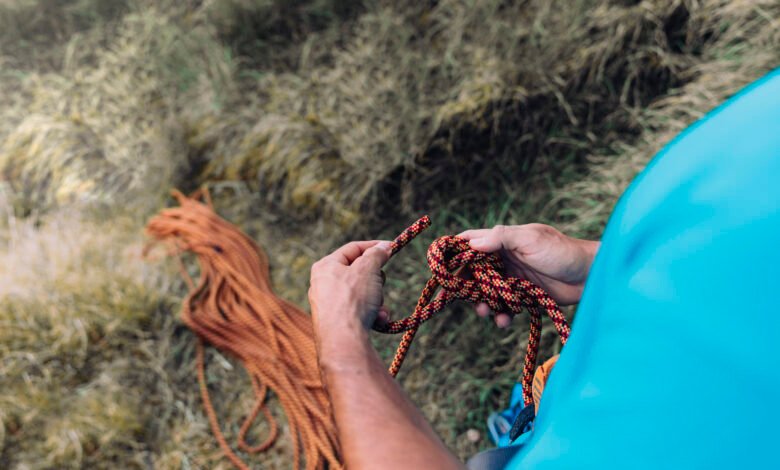Uncuymaza: Weaving the Golden Threads of Community in the Andes

In the high-altitude villages of the Andes, where the air is thin and the connection to the earth is profound, the Quechua language holds concepts that are entire philosophies in a single word. Among these is Uncuymaza (pronounced oon-koo-ma-za), a term that transcends simple translation. It is not merely a word but a guiding principle for life, encapsulating a deep, ancestral understanding of reciprocity, community, and the interconnectedness of all things. To understand Uncuymaza is to peer into the heart of a culture that has sustained itself for millennia through mutual support and a sacred bond with the natural world.
The Linguistic Tapestry: Deconstructing the Word Itself
To fully appreciate the depth of Uncuymaza, one must first unravel its linguistic components. The word is a harmonious blend of two central Quechua concepts: Ayni and Minka (or Mita). While often used interchangeably with these terms by outsiders, Uncuymaza is the overarching ethos that contains them. Ayni represents a fundamental law of reciprocity, a cosmic balance where every action, help, or gift is expected to be returned in kind, though not necessarily immediately or to the same person. It is a continuous cycle of giving and receiving that strengthens the social fabric. Minka, on the other hand, refers to the collective communal work undertaken for the benefit of all, such as building a school, harvesting a neighbor’s fields, or repairing irrigation canals. Uncuymaza, therefore, is the living practice—the active weaving together of Ayni’s reciprocal principle with Minka’s collective action. It is the manifestation of these ideals in the daily life of the community, or ayllu.
Beyond Transaction: Uncuymaza as a Worldview
Reducing Uncuymaza to a simple system of labor exchange or barter would be a profound misunderstanding. It is not a economic transaction but a spiritual and social one. This principle is rooted in a worldview that does not separate the individual from the community, nor humanity from nature (the Pachamama or Earth Mother). When a community gathers under the banner of Uncuymaza to plant potatoes, they are not just farming; they are participating in a sacred dialogue with the land. The work is an offering of labor and respect, and the eventual harvest is Pachamama’s reciprocal gift. This creates a web of obligations and gratitude that extends to every living thing and every community member, from the youngest child to the most elderly elder. It fosters a society where isolation is impossible because everyone’s well-being is intrinsically tied to the well-being of the whole.
The Modern Challenge: Preserving Uncuymaza in a Changing World
In the 21st century, the ancient practice of Uncuymaza faces unprecedented challenges. Migration to urban centers fractures traditional ayllus, as younger generations leave their villages in search of education and economic opportunities, often entering a cash-based economy far removed from reciprocal labor. The encroachment of modern capitalist values, which prioritize individual gain over collective good, can erode the social contracts that Uncuymaza depends on. Furthermore, climate change disrupts the agricultural cycles that have long been the heartbeat of communal work. Despite these pressures, Uncuymaza is not a relic of the past. It demonstrates remarkable resilience, adapting to new contexts. It can be seen in urban migrant associations where members pool resources to support each other or fund projects in their home villages. It exists in community-led tourism initiatives and environmental conservation efforts where the collective protects shared resources, recognizing that their future is interdependent.
A Universal Lesson: What Uncuymaza Teaches the World
While born from the Quechua people, the essence of Uncuymaza offers a powerful lesson for global society. In an era often marked by individualism, social fragmentation, and an exploitative relationship with the environment, Uncuymaza presents a radical alternative. It is a model of sustainability—not just environmental, but social and emotional. It teaches us that true resilience is found not in independence, but in healthy interdependence. It reminds us that our communities are stronger when we show up for one another without the immediate expectation of personal reward, trusting in the circular flow of mutual aid. It challenges the dominant narrative of endless extraction by modeling a relationship with the natural world based on respect and reciprocity, not domination.
Conclusion: The Enduring Thread
Uncuymaza is far more than a custom; it is the golden thread that weaves together the past, present, and future of Andean culture. It is a sophisticated social technology that has ensured survival and fostered profound meaning for countless generations. It proves that a society built on the principles of mutual responsibility, profound respect for nature, and collective well-being is not only possible but has been thriving for centuries. As the world searches for more sustainable and connected ways to live, looking to wisdom traditions like Uncuymaza provides not just inspiration, but a proven blueprint for building a more compassionate and resilient world, one act of reciprocal kindness at a time.
FAQ on Uncuymaza
Q: Is Uncuymaza the same as volunteering?
A: Not exactly. While both involve unpaid work, volunteering is often a choice made by an individual to help a cause. Uncuymaza is an embedded social and moral obligation. It is an expected part of community membership, and the “repayment” is the knowledge that the entire community, including you and your family, will be supported in turn.
Q: How is Uncuymaza different from bartering?
A: Bartering is a direct, immediate exchange of goods or services (e.g., “I’ll give you my corn for your beans”). Uncuymaza is indirect and long-term. The help you give today may be repaid to you years later by someone else in the community when you need it most. It’s based on trust and the health of the entire social network, not a one-to-one transaction.
Q: Can this concept work in a large, modern city?
A: The scale would be different, but the principle can absolutely be applied. It manifests in neighborhood associations, “time banking” where people exchange services, carpooling groups, community gardens, and any initiative where people come together for a common good based on trust and mutual aid rather than immediate financial gain.
Q: What happens if someone doesn’t participate in Uncuymaza?
A: In a traditional context, non-participation is taken very seriously. It signifies a break in the social contract. The individual and their family may find themselves socially ostracized and, crucially, will have no claim on community support in times of need, such as for building a home, harvesting, or during a crisis. The social pressure to participate is immense because the system’s survival depends on universal buy-in.



